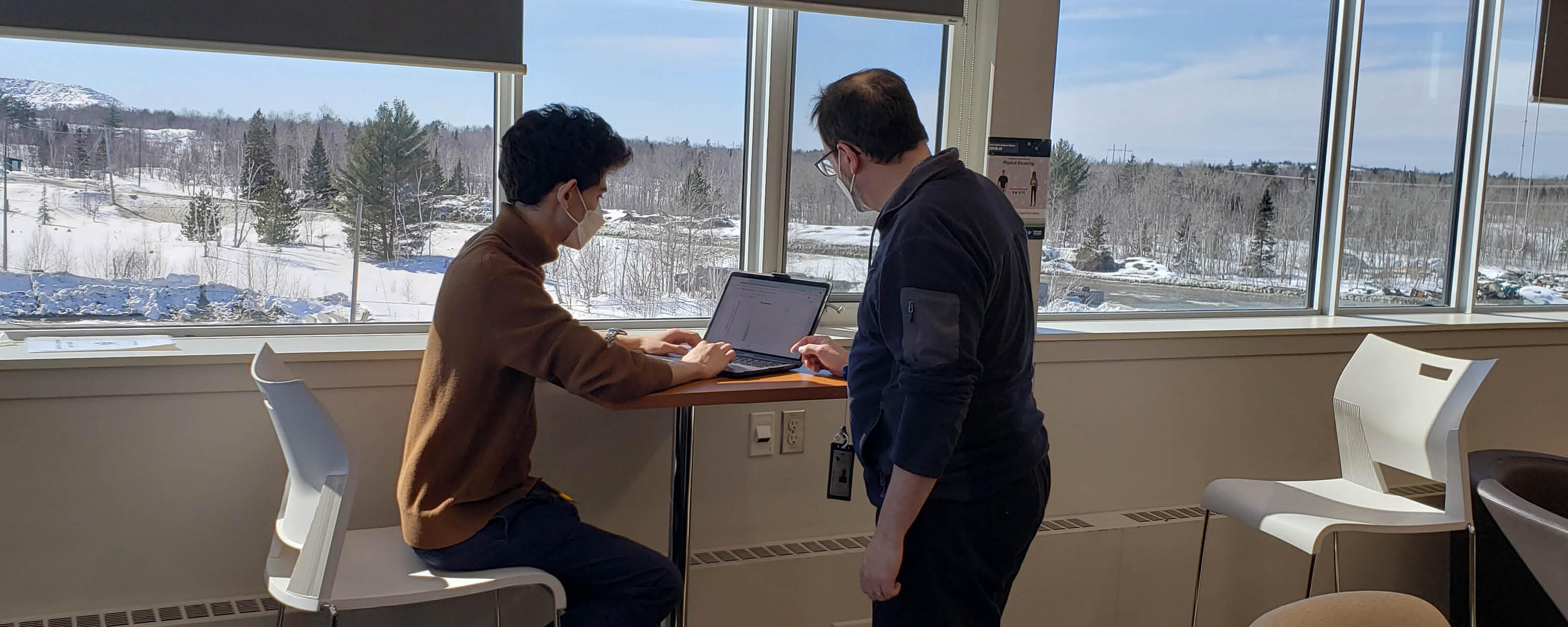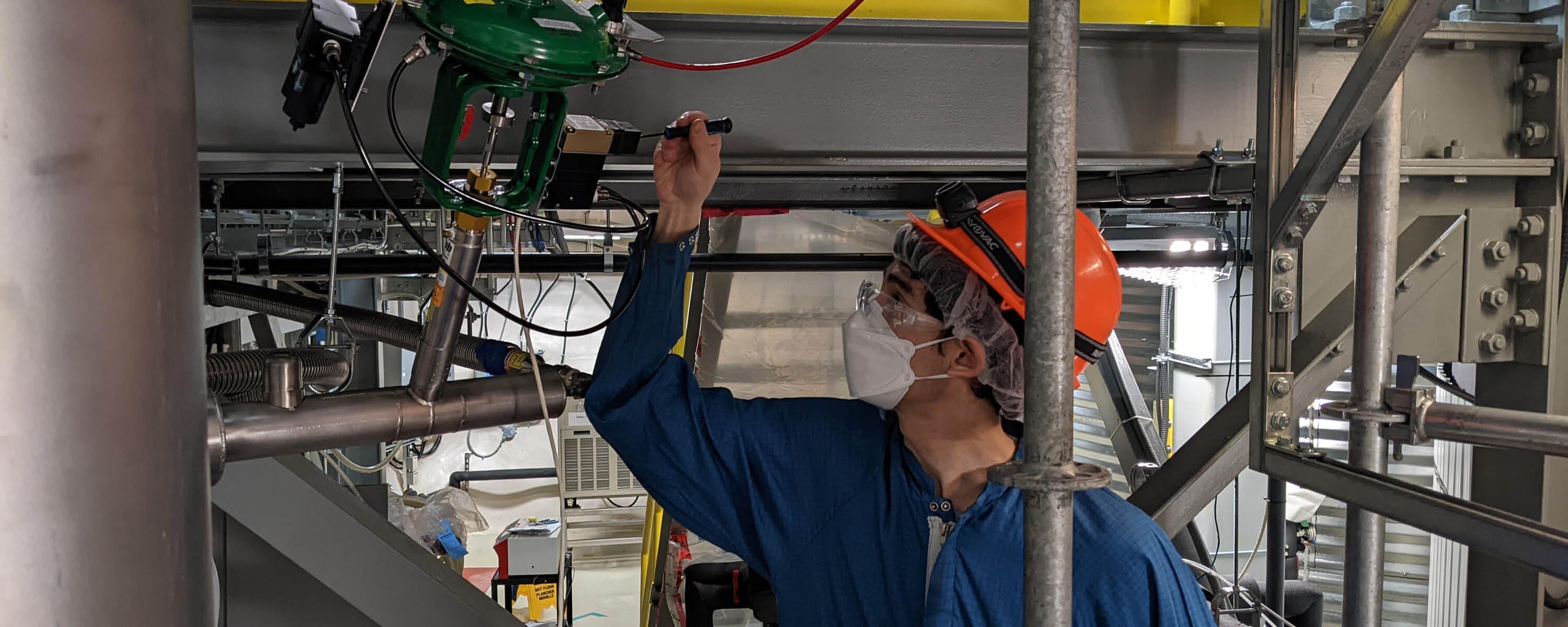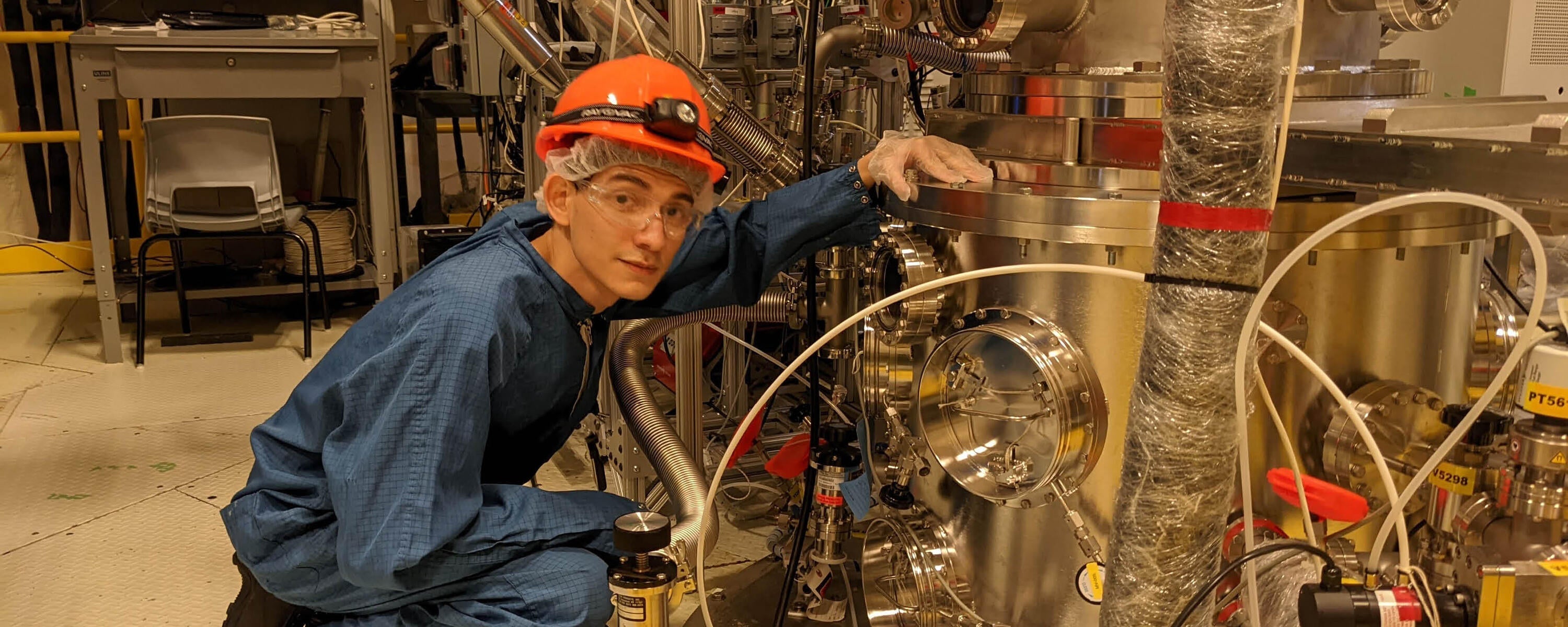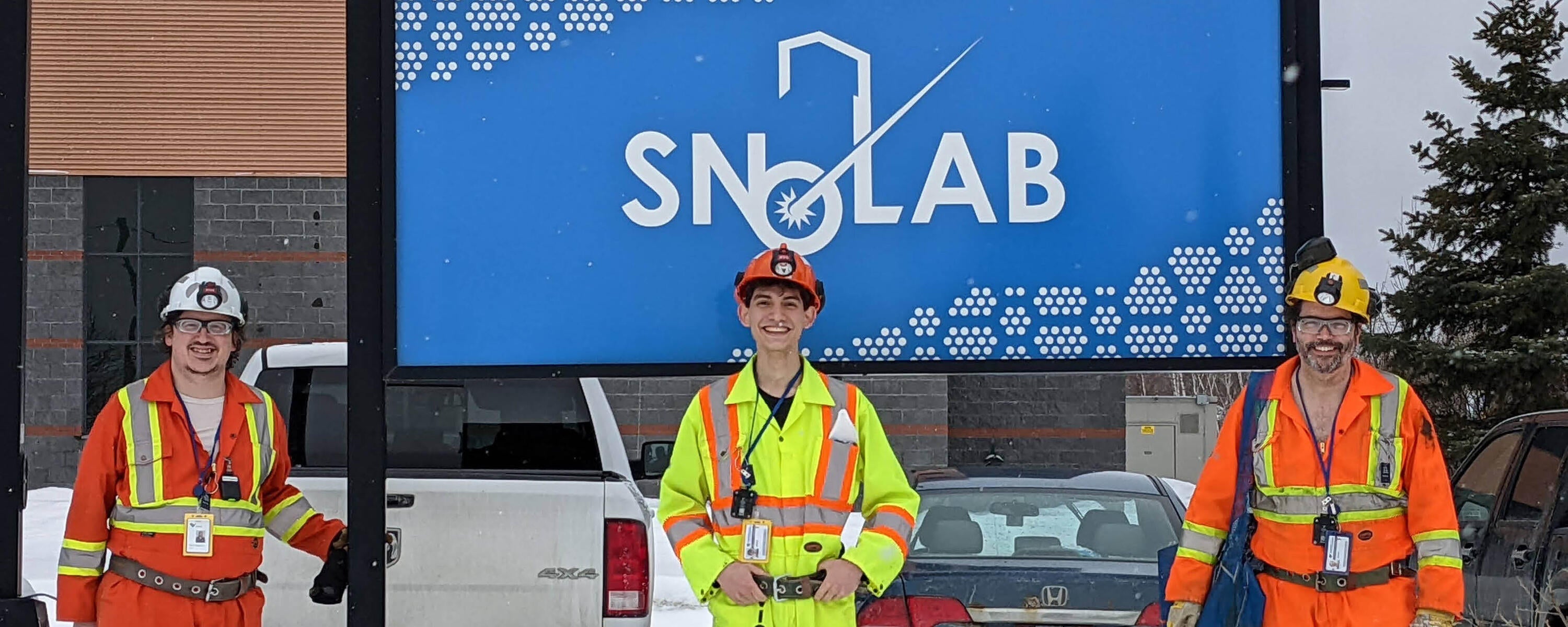Written by the Faculty of Science
When you first meet Khurshid, an international student from Uzbekistan, he’s serious, polite, and thoughtful when he speaks. But once you start talking to him about physics or his family, Khurshid becomes bright and animated.
That same enthusiasm was present when Khurshid was asked about his co-op position at SNOLAB, Canada’s world-class underground research laboratory that focuses on astroparticle physics (specifically neutrino and dark matter studies). A Science student majoring in Mathematical Physics and minoring in Pure Mathematics and Astrophysics, Khurshid was eager to talk about his experience, everything from the interview process to what he hopes to get out of his experience at SNOLAB.
Khurshid loved the interview too — it felt like he had found a like-minded physicist that he aspires to become. Dr. Chris Jillings (his future supervisor at the time) asked him about physics, welcomed him to demonstrate his independent and creative intellect, and thinking outside the box about phenomena as star reactions and supernovas.
I already knew at the interview that I wanted to work here. I prepared for it by researching everything I could on SNOLAB and the people working there. It helped me feel confident and excited for the position because I’d be working on cutting edge experiment at one of the greatest physics research facilities in Canada and the whole world.

Khurshid and Dr. Chris Jillings working in the above-ground offices of SNOLAB.
The first day
“My first day was a mixture of formalities and physics. I had a general introduction with Dr. Chris Jillings, my manager and research supervisor, but then we jumped right into talking about the science that is happening at SNOLAB. We briefly discussed the big bang, the formation of matter in the universe — everything you’ve ever known and how it came into being and what could be a potential candidate for the dark matter particle.” Khurshid noted that Chris treated him like an equal member of the science community — not just a student. This was something Khurshid appreciated because it made hard science less intimidating and more accessible.
“We talked about how we’ve never been able to detect dark matter, yet we have plenty of astrophysical evidence that tells us there is something up there far beyond the deep blue sky, on the outskirts of galaxies.”, Khurshid recalls. “Then you ask yourself: how do you measure something that has never been measured before? We start with all known particles that can be detected and determine their unique signal (or signature). The detector’s software discriminates against all those signatures until it picks up something completely different and unknown — the potential dark matter we’ve been looking for. We haven’t found what we’re looking for yet, but the researchers are hopeful as these detectors are meticulously increasing our knowledge and improving our work while eliminating other possibilities until we come across that one particle that might change the model of particles and pave our way beyond the universe we know today.”

Khurshid and Postdoctoral Research Fellow Sean Daugherty in the underground facilities at SNOLAB.
This wasn’t just a memorable day for Khurshid, but for Chris Jillings too, who has been a long-time supporter of Waterloo’s co-op program. “We can see the students learn and grow during their work terms. It’s great fun to watch students learn to solve problems that don’t take hours to solve, but instead days or weeks. At SNOLAB, it’s been a great experience for us. The students make real contributions to support our dark matter and neutrino experiments.”
Khurshid’s favourite part of the job is going underground. “You have coffee with the scientists, head down the shaft with other miners, and then it’s a long walk to the SNOLAB while talking about a variety of scientific topics — from physics to biology. It’s all exciting and inspiring.”
And when probed about his least favourite part of the job, he insists that it’s been nothing but positive. Even when challenging his coding skills, he’s been able to gain the expertise needed. He’s learning on the job and feels it’s preparing him for his next goal of getting into graduate school to study particle physics or quantum information.

Khurshid working on the underground research equipment for the DEAP-3600 dark matter detector.
The work
According to Chris, Khurshid spends about 25 per cent of his time helping with hardware upgrades on the DEAP-3600 dark-matter search experiment. “He has rebuilt vacuum pumps, leak-checked vacuum systems, and reconstituted a system to wash with citric acid for our ultra-pure components.” The other 75 per cent? “He’s spent most of his time helping us understand a source of potential background signals that come from the walls of a liquid argon detector. He's working with colleagues from around the world to simulate such potential backgrounds using Monte Carlo techniques and then developing techniques to reject these events.” As you can see, Khurshid has become a valued member and contributor of the SNOLAB organization.

Khurshid at the glove box — the upper part of the DEAP-3600 dark matter detector.
What’s going to be the biggest thing Khurshid takes away from this experience?
“It’s realizing that the realms of physics and mathematics are so vast, that co-op helps to narrow down what you love. A lot of people say it’s never too late to do what you like and switch — but I would add that it’s helpful to know in advance where your passion lies. I want to study what I’m interested in because your thesis often becomes your job later on — and I want to do what I love every day. Co-op helps combat that uncertainty you have as an undergrad. I like what I’m doing right now and testing out what I’m good at. Like, can I handle more math? And when I test myself, I find yes — that’s what gets me really excited to continue with my work — to read and apply the math really fast to solve the great 'universal' puzzles.”
I want to study what I’m interested in because your thesis often becomes your job later on — and I want to do what I love every day.

Khurshid, Sean Daugherty and Chris Jillings on the surface after a 10-hour underground shift.
Related articles

When it’s actually rocket science
Just like everybody else, Harmohit was excited to start university. And just like so many, he found that first week overwhelming. He was new to the university campus. He was new to residence. And he was new to Canada.

Preparing for labs in university
Science labs can really help you understand and apply what you’ve learned in a lecture, and depending on what you're learning about, they can really blow your mind. For those of you who are already excited about university labs (I've been there!), here are the answers to some questions you've been wondering about.

Discovering what it means to "think like a physicist"
Beyond pursuing a subject that interests you, choosing what to study at university is about developing your worldview.

